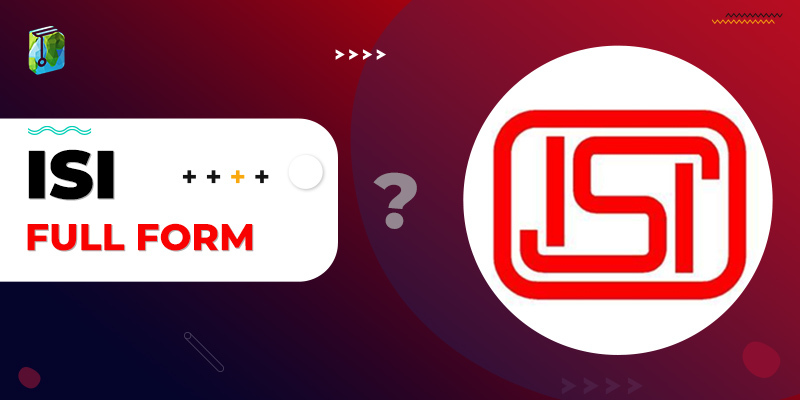ISI full form is the Indian Standards Institute. It was India’s standard-setting body, tasked with developing standards for orderly industrial growth and maintaining quality in industrial production. It offers an ISI mark, which is a certification mark for national industrial products that meet the Indian Standards Institute’s specifications.
Here in this post, we have mentioned everything you need to know about the full form of ISI.
So let us get started!
ISI History
The ISI came into existence on January 6, 1947. Dr. Lal C. Verman was appointed as its first director. In the year 1987, ISI was renamed as BIS (Bureau of Indian Standards). The Bureau is governed by 25 members representing both central and state governments, technical, scientific, and research institutions, ministries, and representatives of consumer organizations and professional bodies.
The headquarters of BIS is situated in New Delhi, and its five regional offices (ROs) are in Kolkata (Eastern), Chennai (Southern), Mumbai (Western), Chandigarh (Northern), and Delhi (Central). Under the Regional Offices are the Branch Offices (BOs) located in many cities, which offer certification services to the industry and establish coordination between state governments, industries, technical institutions, consumer organizations, etc., of the respective region.
Currently, BIS is the National Standards Body of India and is responsible for providing a guarantee of safe, reliable quality goods; minimizing health hazards to consumers; promoting exports and imports substitutes and controlling the propagation of varieties, etc. by developing various activities as given below:
- Standards Formulation
- Product Certification Scheme
- Compulsory Registration Scheme
- Foreign Manufacturers Certification Scheme
- Hall Marking Scheme
- Laboratory Services
- Laboratory Recognition Scheme
- Sale of Indian Standards
- Consumer Affairs Activities
Promotional Activities - Training Services, National & International level information Services
Any manufacturer can apply the BIS standard, provided their product meets ISI product certification criteria.
Fraudulent and unauthorized use of the ISI mark is punishable under the BIS Act.
ISI Full Form | Indian Statistical Institute
ISI is an abbreviation for the Indian Statistical Institute. ISI is a national-level institution that primarily focuses on statistics and related disciplines through projects and consulting in Statistical Quality Control and Operations Research. It is also well-known for its natural science and social science research, teaching, and application.
Professor P.C. Mahalanobis established ISI on December 17th, 1903. The institute, which was founded in Kolkata, was granted national significance by an act of the Indian Parliament in 1959.
Courses offered by the institute-
-
- Bachelor’s and master’s degrees in math, statistics, quantitative economics, computer science, cryptology, and security, quality management science, library, and information science.
- Postgraduate Diploma Programmes in Computer Application, Business Analytics, Statistical Methods, and Analytics
- The part-time certificate program in the field of statistical quality control
- Programs for Research Fellowships
Eligibility criteria for admission and duration of the course vary depending on the selected Programmes.
ISI Full Form | Inter-Services Intelligence
The full form of ISI is Inter-Services Intelligence. The ISI is the intelligence agency of Pakistan that has been involved in planning, preparing, and executing terrorist attacks against the people of foreign countries, especially India.
The ISI was created after the Indo-Pakistani War of 1947 due to the weak performance of the Military Intelligence of Pakistan (MI). Lt. General Faiz Hameed is the current chief of the ISI.
Operations- Few of the operations supposed to be executed by the terrorists’ group of ISI are-
- Operation Tupac- Strategic initiation from Kashmir and Khalistan (K2) to make Jammu and Kashmir a part of Pakistan and send terrorists to Punjab in July 1977.
- Establishment of bases in Nepal and Bangladesh for operations in North-East India.
- The 1993 series of 13 bomb explosions in Mumbai, Maharashtra, India on Friday, 12 March
- The 2006 Mumbai train bombings ended with a series of seven bomb explosions.
- The 2011 attack on the Taj Hotel in Mumbai is popularly known as the “26/11” attack.

